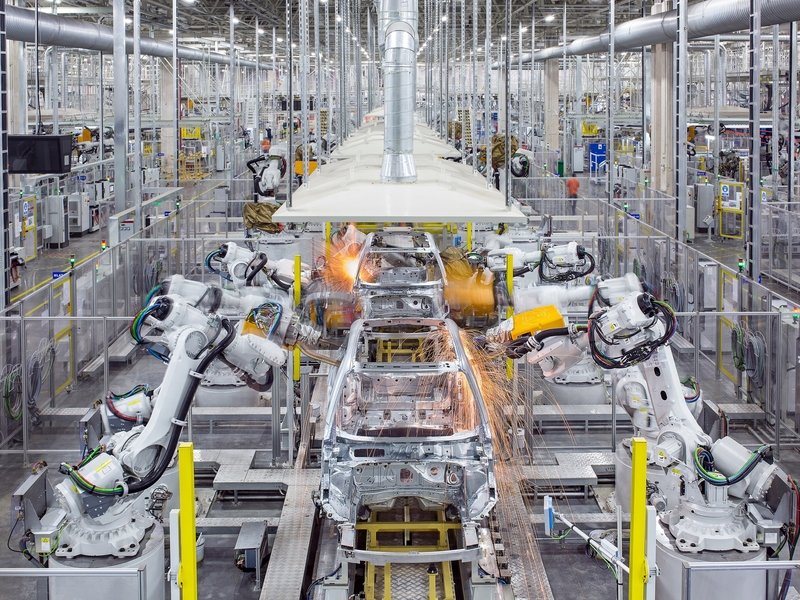
While vehicle and component production has slowed to a trickle in Europe because of the coronavirus outbreak, Daimler, Volvo and suppliers say their factories in China are coming back online.
Daimler has reopened its factory in China, where demand for vehicles is recovering, CEO Ola Kallenius told a German newspaper.
“The vast majority of our dealerships have reopened, the customers are returning,” Kallenius told Handelsblatt. “Every day more people come to the car dealerships. Demand is picking up, which makes us optimistic.”
Earlier this month Volvo Cars reopened its four manufacturing plants in China after an extended closure period to cope with the virus outbreak.
The automaker said that current showroom traffic indicates a return to normal in China’s car market. Volvo makes vehicles in Chengdu, Luqiao and Daqing and builds engines in Zhangjiakou.
Another positive sign is that Volvo subsidiary Polestar started production Tuesday of its first volume model, the Polestar 2, in Luqiao.
“This is a great achievement and the result of huge efforts from the staff in the factory and the team securing the supply chain,” Polestar CEO Thomas Ingenlath said in a news release.
The plant, which is owned by Zhejiang Geely Holding and operated by Volvo, is the sole production site for the 300-kilowatt (408 hp) full-electric midsize fastback, which will challenge the Tesla Model 3. European deliveries start this summer.
Separately, Polestar said in a note to customers that its China team avoided the coronavirus through temperature screenings, thoroughly disinfecting factories as well as providing masks and medical checkups for all its employees.
On the supplier side, German roof specialist Webasto has resumed production at all 11 of its plants in China. “But due to the still-limited demand from customers, capacity utilization is currently only around 60 percent. This is partly due to the high warehouse stock held by OEMs,” Chairman Holger Engelmann said in a statement sent to Automotive News Europe.
French supplier Faurecia said all its factories in China have resumed production in the past week. Francois Tardif, vice president for China, told financial newspaper Les Echos on Tuesday that it was now at about 70 percent of typical production. “Our production in China is returning to normal,” he added.
Andreas Wolf, CEO of Continental’s soon-to-be-spun-off powertrain arm, Vitesco Technologies, told ANE “things are already getting back on track in China.”
Swedish radar and vision systems supplier Veoneer, which was spun off from airbag maker Autoliv in 2018, said its factories are running at about 85 percent capacity.
When asked whether Europe’s downturn risks slowing production at Veoneer’s China plants, a company spokesman said that was not likely because the output is primarily for China or for export to South Korea, which has also rebounded strongly from a coronavirus outbreak, and Japan.
China’s Hubei province said it will allow transportation to resume for the city of Wuhan on April 8, effectively lifting a mass quarantine over the city where the coronavirus first emerged last December, Bloomberg reported. The easing of restrictions came as Hubei reported that new infections dropped to zero on March 19.
Despite the changes a Renault spokeswoman said on Tuesday that the automaker’s Wuhan factory, which it operates with joint-venture partner Dongfeng Motor, has not yet received final government clearance to reopen.
Peter Sigal contributed to this story